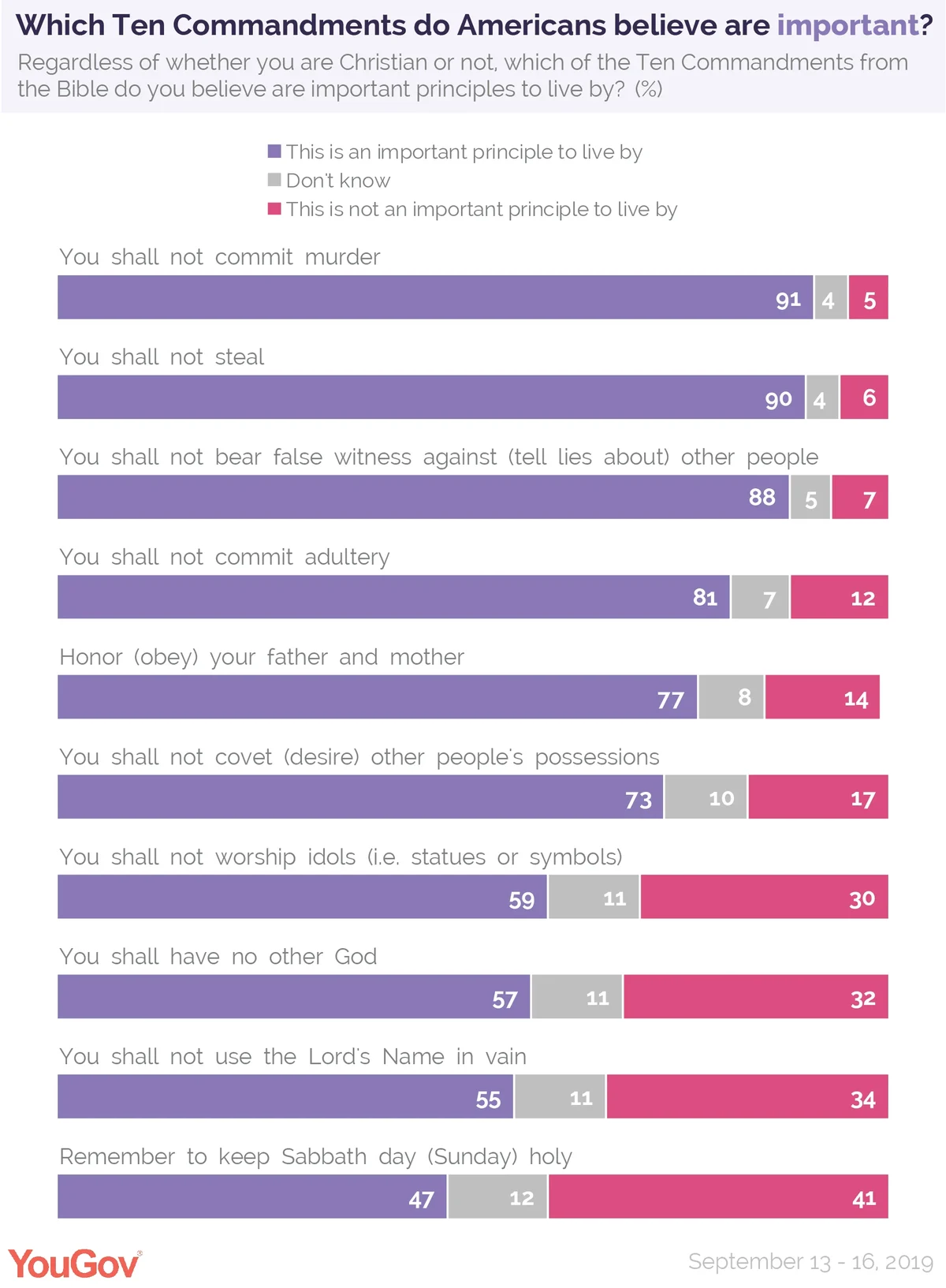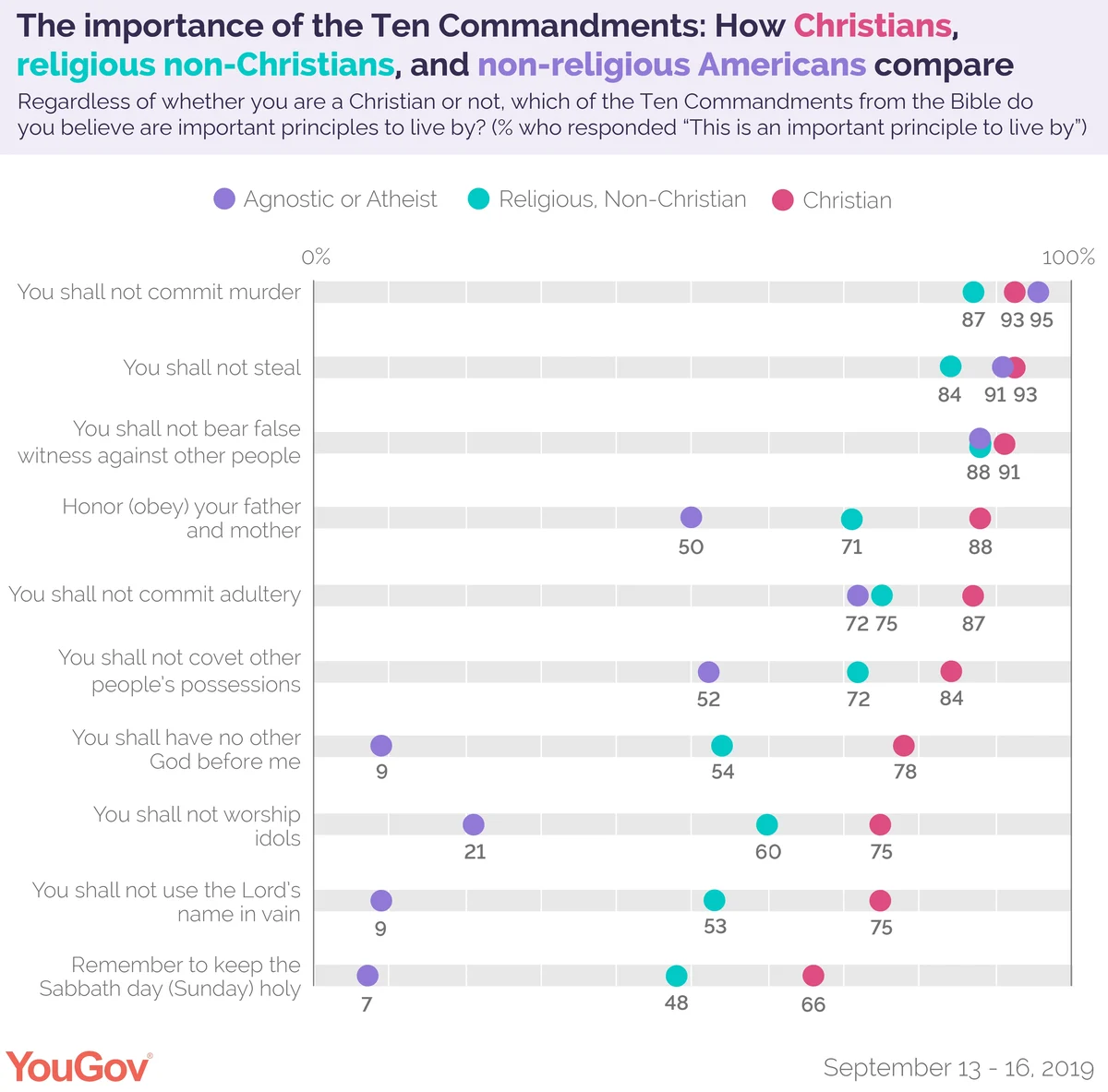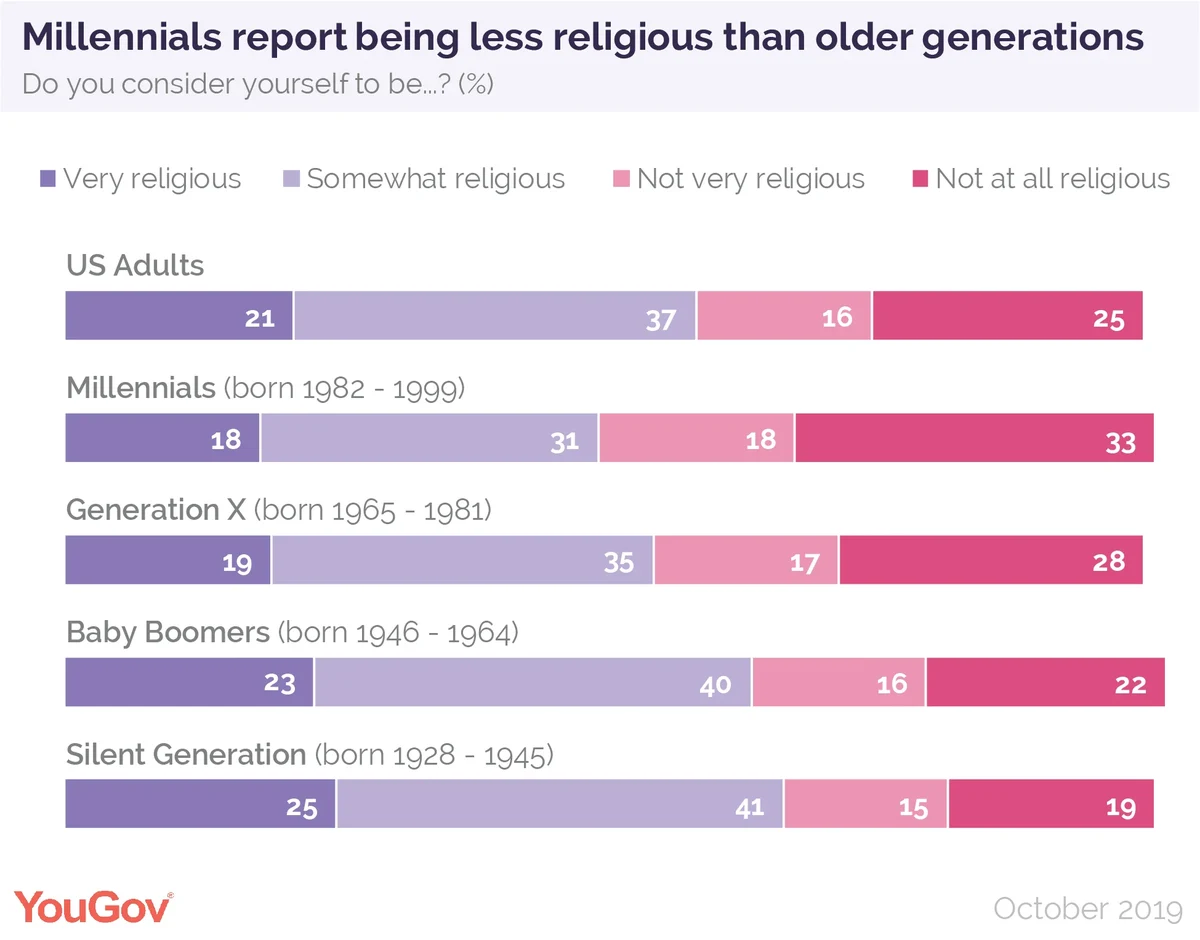As the Christian story goes, the Ten Commandments of God were handed down to Moses as the set moral rules for humanity. Even in the 21st Century, these Biblical rules provide an ongoing foundation for what people deem acceptable in modern society. And while a majority of US adults say that most of the tenets remain important today, there are significant differences—and moments of consensus—between religious and non-religious Americans.
YouGov research indicates that US Adults overall are more likely to say every commandment is “an important principle to live by” rather than an unimportant principle. The top Commandments that are still accepted as important in America today: don’t murder (91%), don't steal (90%), don't bear false witness (88%), don't commit adultery (81%), honor father and mother (77%), and do not covet another person’s possessions (73%).
The least popular Commandment for modern significance is to keep the Sabbath holy (47%), according to the survey—which asked Americans about the King James Bible’s translation of the Ten Commandments.

Christians and Americans who identify as Atheist or Agnostic are equally likely to see the importance of “Thou shalt not kill” (95% for non-religious Americans vs. 93% for Christians), “Thou shalt not steal” (91% for non-religious Americans vs. 93% for Christians), and “Thou shalt not bear false witness” (88% for non-religious Americans vs. 91% for Christians).
Americans who identify as religious, but not Christian, are more likely than non-religious Americans to consider the Ten Commandments important rules to live by. For example, around seven in ten (72%) of non-Christian religious Americans say it is important not to covet other people’s possessions compared to half (52%) of non-religious Americans and 84 percent of Christians.
Non-religious Americans are more likely than religious Americans to forgo the first five commandments that focus on respecting a deity and parental authority. Fewer than one in ten (9%) of Agnostic and Atheist Americans see the importance of only worshipping the Christian God or not using the Lord’s name in vain. Even fewer (7%) see the point of keeping Sunday holy.

More Millennials remain dedicated to the Ten Commandments than not, but Millennials are less likely than Generation X and Baby Boomers to consider the rules “an important principle to live by.” When it comes to honoring your parents, for instance, 64 percent of Millennials find this rule important compared to more than three-fourths (78%) of Generation X and 88 percent of Baby Boomers.
Similarly, Millennials overwhelmingly say it’s important to not commit adultery (72%), but they are less likely than Generation X (82%) and Baby Boomers (87%) to say this is an important principle.
When looking at spirituality overall, a majority of Americans (58%) consider themselves “very religious” or “somewhat religious.” Two-thirds of the Silent Generation (66%) consider themselves religious, compared to half of Millennials (49%).

Other YouGov data shows that Generation Z (23%), Millennials (23%), and Generation X (27%) are less likely than Baby Boomers (35%) and the Silent Generation (44%) to practice a religion at all.
Overall, America remains more dedicated to the Christian God’s commandments than Britons. A similar survey published by YouGov in the UK revealed that while Britons agree that it is important to not murder (93% say it is important), not steal (93%), bear false witness (87%), commit adultery (73%), obey one’s parents (69%), not covet (61%), a majority disagree with the remainder of the Ten Commandments.
A majority of Britons say it is “not important” to not worship idols (56%), not use the Lord’s name in vain (68%), have no other God besides the Christian God (68%), or keep Sunday as a holy day (73%).
Related: How much money do you think you can make? That often depends on your race and gender
Survey Methodology: Total unweighted sample size was 1,344 US adults, which included 660 people who identify their present religion as Protestant or Roman Catholic (categorized as “Christian”), 170 people who identify their present religion as Atheist or Agnostic (categorized as “non-religious”), and 206 people who identify their present religion as Buddhist, Hindu, Muslim, Jewish, Eastern or Greek Orthodox, Mormon, or Something Else (categorized as “religious, non-Christian). The unweighted sample size also included 457 Millennials, 326 Gen Xers, and 454 Baby Boomers. The figures have been weighted and are representative of all US adults (ages 18+). Interviews were conducted online between September 13 - 16, 2019.
Other YouGov Data on Religion: The question “Do you consider yourself to be…? [Very religious, somewhat religious, not very religious, not at all religious]” comes from YouGov Profiles data, which collects data over a one-year period. Total unweighted sample size was 49,338 US Adults, which included 6,128 Millennials, 10,655 Gen Xers, 25,061 Baby Boomers and 7,300 from the Silent Generation. The figures have been weighted and are representative of all US adults (ages 18+). Interviews were conducted online between October 2018 - October 2019.
Image: Getty












